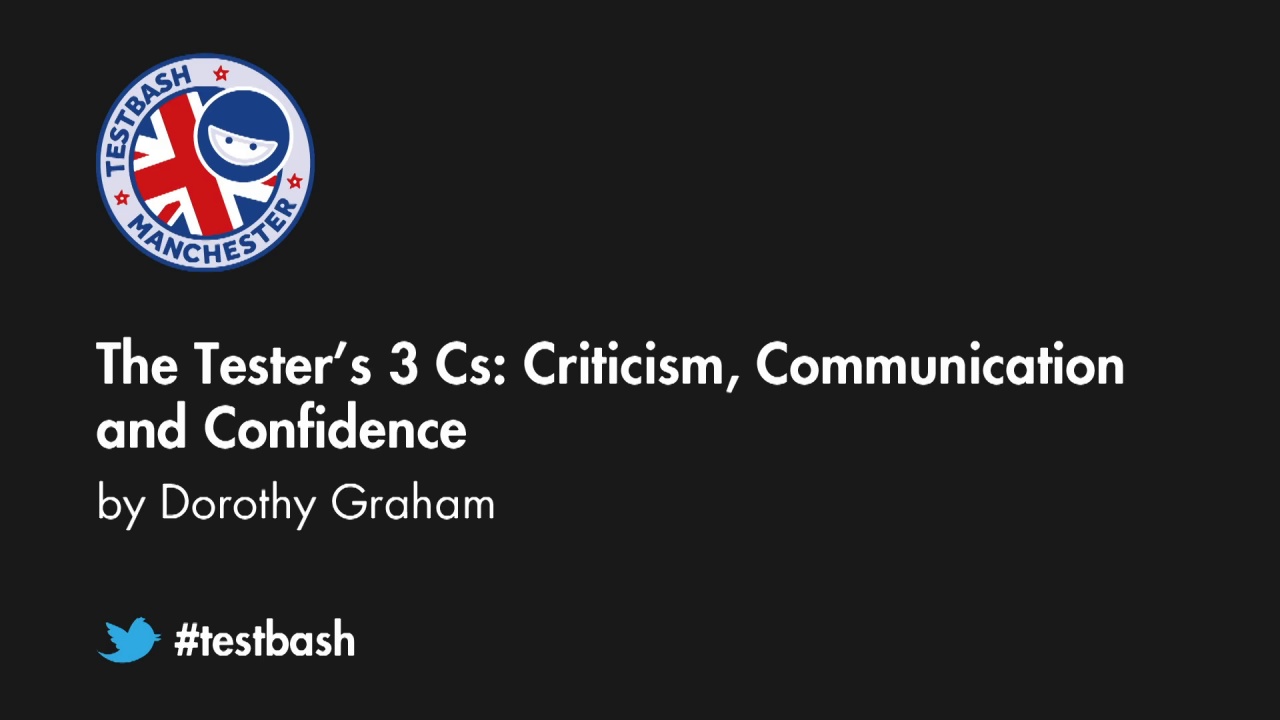The tester’s 3 Cs: Criticism, Communication and Confidence - Dorothy Graham
-
Locked

Talk Description
Communication in agile teams is supposed to be seamless and much better than the “old days”. But how can communication be effective when you are sometimes telling people what they don’t want to hear? Whether you are in an independent testing team and need to communicate more formally, or communicating face-to-face in an agile context, how can you be effective when you are sometimes telling people what they don’t want to hear? What do testers do? They are critics, often of other people’s work; they need to communicate their findings successfully with confidence. In this talk, Dorothy Graham looks at what criticism is, its different types and “DASR”, an effective script for giving criticism (technical or otherwise). Knowing how we respond to being criticized also gives useful insight into criticizing others. Dot covers different types and styles of communication, including Virginia Satir’s communication interaction model, illustrated with an example. Self-confidence can make a large difference in our effectiveness as a critical (in the best sense of the word) tester; both under-confidence and over-confidence can be damaging. It is far more common for women to be under-confident, but there are ways to overcome it.
Takeaways:
- criticism is what testers do; it is important to understand how it feels to be criticised and how to criticise well
- the way in which we communicate is crucial to interpersonal interactions
- the right level of confidence is needed to be an effective tester
What you’ll learn
By the end of this talk, you'll be able to:
- TBA
Suggested Content

